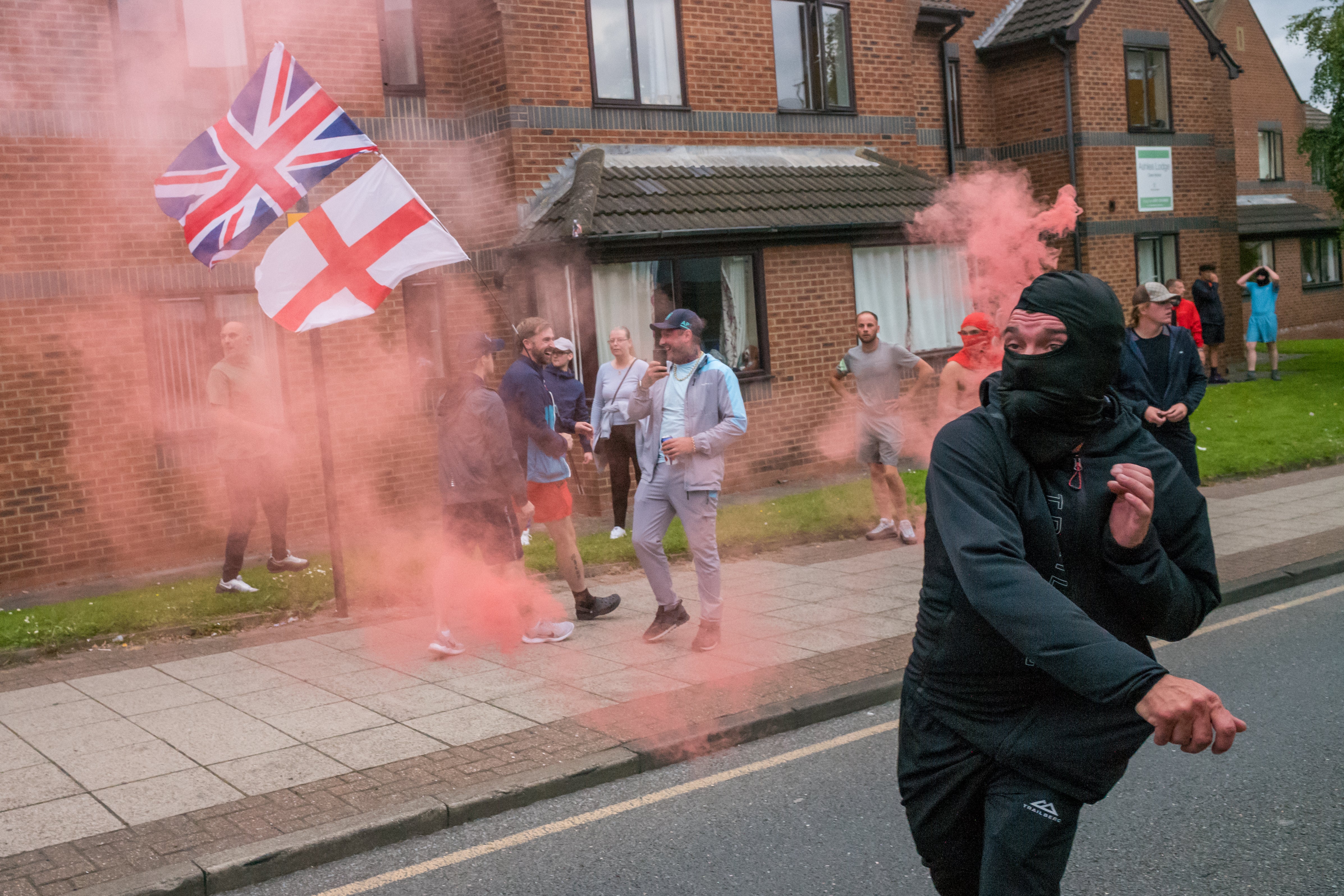I worked in the Home Office during the 2001 riots – these are the mistakes the UK government must avoid
Questions of Britishness and national identity lie at the heart of recent unrest, writes Dr Varun Uberoi

Following riots in Oldham, Burnley and Bradford in 2001, the government sought to reduce the “parallel lives” of different communities that allowed hostility between them to turn into riots.
Today, some rightly note a need to look back to see what worked from that period, as well as understanding which mistakes were made. I saw some of these mistakes as a young official in the home office – and then later as an academic.
The first mistake was that long-established immigrants and their descendants, particularly Muslims, were portrayed in speeches by the home secretary and others as “outsiders” – despite the fact that they were (and are) citizens. They were also portrayed as being “un-British”.
I often heard colleagues at the time say the government “acts left, but talks right”. Even though that same government had introduced the Stephen Lawrence Inquiry and the Race Relations Amendment Act, they had to seem tough on minorities to prevent criticism from the right-wing media and to win support from white working-class voters.
Something similar could easily happen today. The government could very easily switch from calling the rioters “thugs” for targeting mosques, Muslims and ethnic minorities – to saying they will now reduce immigration and increase integration in order to address the concerns that fuelled the riots.
This would be deeply regrettable. Doing so could easily make racist rioters feel vindicated, as the state would be seen to be accepting their complaints around immigration. It could also legitimise hostility towards immigrants and trigger spikes in racial and religious hatred incidents.
The second mistake from that period was that discussions of national identity at the time had a crucial omission. Work that Tariq Modood and I published showed that, as with the Conservatives of the time, Britishness was defined by Labour using legal and political norms, values and beliefs and emphasising how minorities contributed to Britain.
Members of an English cultural majority may ask “where are we in these understandings of Britishness?” The English majority must be an explicit and significant part of inclusive ideas and narratives of England and Britain promoted through, for example, the education system. How else will these inclusive narratives resonate with the English majority?
The coronation of King Charles showed how inclusive ideas of Britain can include minorities. The ceremony aimed to celebrate “the character of Britain”. It was overwhelmingly Christian and steeped in British history – but minorities were still prominent.
King Charles called Britain a “community of communities” – a community with its own traditions, myths and symbols that minority communities have added to and become part of, over time.
Of course, King Charles’s phrase of “a community of communities” is not new or just his. Many have used this phrase and meant different things by it, including the historian of political thought JN Figgis, the philosopher Martin Buber and the former Canadian prime minister, Joe Clark.
But the idea that King Charles was drawing on came from the Parekh Report, published just a year before the government at the time introduced its policy of community cohesion. Sadly, they ignored the Parekh Report altogether – a grave mistake.
The government seemed to fear the way that the media reacted to the Parekh Report, and even today those who rightly refer us back to the proposed reforms of the community cohesion period mention many reports but neglect this one. Yet this report subtly identified the importance of inclusive national narratives. These must include both the significance of a majority group and how minorities add to the country, so that minorities and majorities in Britain can see why they together form a unit or a group and have unity.
This is the sort of unity that includes cultural difference and is not threatened by it. More of this unity is needed to prevent riots that target ethnic minorities and different types of immigrants.
Dr Varun Uberoi is a reader in political theory and public policy at Loughborough University






Join our commenting forum
Join thought-provoking conversations, follow other Independent readers and see their replies
5Comments